Early career researchers
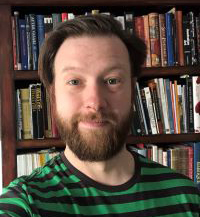
Dr Callum Reid
Associate of the School of Culture and Communication, The University of Melbourne
Callum Reid is an art historian whose research fields include museology, printmaking, early modern art and decorative arts, with a particular focus on the formation of collections and their reception. Callum is further interested in the history and provenance of objects, having also spent several years working in the art market and collecting institutions. Adapted from his PhD, his upcoming monograph Collecting and display in the Uffizi Gallery: Art in the age of the grand dukes (Routledge, 2021) is a museological study into Florence’s state gallery, and its early incarnations under the control of Medici and Lorraine grand duchies (1580-1859). Callum's research into 18th and 19th century museums aligns with the ERCC theme of Critique, Creativity, Comparison, as collectors and administrators toyed between the new trend of didactic arrangements and the self-representation of aesthetic displays.
Email: callum.reid@unimelb.edu.au
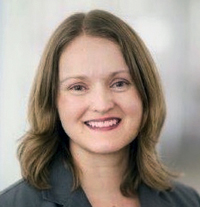
Dr Louise Box
School of Culture and Communication, the University of Melbourne
Louise is an art historian, curator, and educator with research interests in eighteenth-century visual and decorative arts; the collection and display of prints; the material culture of the English country house; and business and the arts. Her doctoral research focused on the print collection of Lady Elizabeth Seymour Percy, 1st Duchess of Northumberland (1716-1776). In 2018, Louise was the Harold Wright and Sarah and William Holmes Scholar in the Department of Prints and Drawings at the British Museum. She has also been awarded a Paul Mellon Research Support Grant and a Francis Haskell Memorial Fund Scholarship for research in collections and archives in the UK, Europe, and the USA. She is a Trustee of the Colin Holden Charitable Trust, which supports print scholarship. Louise’s publications include: 'Enlightened “Museums of Images” or Decorative Displays? Elizabeth Seymour Percy and the Eighteenth-Century Print Room' in Eighteenth-Century Life, Sept, 2021; a chapter in Kerrianne Stone (ed.) Horizon Lines, Marking 50 Years of Print Scholarship, Melbourne, 2019; and 'Marks and Meanings: Revealing the Hand of the Collector and “the Moment of Making” in two 18th-Century Print Albums', Journal18, Fall, 2018.
Email: box.l@unimelb.edu.au
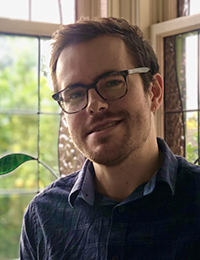
Dr Nat Cutter
Teaching Associate (Periodic) and ARC Research Coordinator, School of Historical and Philosophical Studies and School of Culture and Communication, The University of Melbourne
Nat’s current research focuses on the experiences and influence of British expatriates living in the Maghreb (Morocco, Algeria, Tunisia and Libya) in the seventeenth and eighteenth centuries, highlighting their broad networks of material, cultural, and informational exchange throughout the Mediterranean world and eastern Atlantic, and how their reports and attitudes were presented to a wide audience through British newspapers. He is interested broadly in interactions between Protestant Europe and the Islamic world, media history, diplomacy, networking, material culture, religious and cultural dialogue, privateering, and piracy. Nat has published articles on English news representations of the Maghreb, information flows between Britain and the Maghreb, and on social connection and isolation in British communities in the Maghreb. His research has been funded by the Huntington Library, the Folger Shakespeare Library, the American Society for Eighteenth-Century Studies, ANZAMEMS and the University of Melbourne. He is currently working on projects relating to the reception of the Maghreb in English, Scottish and Irish print, on the diffusion of Morocco leather in the British luxury bookbinding and upholstery trades, and on the importance of exilic theology as a framework for processing Protestant life in the Islamic Mediterranean.
Email: nat.cutter@unimelb.edu.au
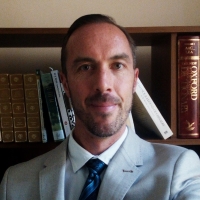
Dr Todd Dearing
Flinders University
Todd Dearing’s work focuses on Romantic ideas of the human and conceptions of imagination, creativity, and genius. He explores how these ideas impact upon contemporary literary criticism and contemporary ideas of the human. His doctoral thesis was on the trope of the daimon in William Blake’s magnum opus, Jerusalem: The Emanation of the Giant Albion, read as an allegory for literary practice. His broader research interests include English and German Romantic literature, art, and philosophy, (post)humanism, contemporary literary criticism, poetry, mythopoeia, and the links between psychology and literature. Todd is interested in the ERCC themes ‘Creativity, Critique, Comparison’ and ‘Actual, Mixed, and Virtual Realities’, and the ERCC research projects ‘Critique, Creativity, Innovation’, ‘William Blake and the History of Imagination’, and ‘Gothic Fictions’.
Email: todd.dearing@flinders.edu.au
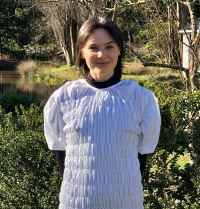
Sophie Dungan
Tutor, Monash University
Sophie Dungan is an educator whose research fields include vampire fiction, ecocriticism, Anthropocene studies and Gothic Fiction. Adapted from her MA, her first monograph, Reading the Vegetarian Vampire (Palgrave, forthcoming), traces the rise of the so-called ‘vegetarian’ vampire in popular culture, while also exploring how the shift in the diet of (some) vampires, from human to animal or synthetic blood, responds to a growing ecological awareness that is rapidly reshaping our understanding of relations with other species. Her broader research interests include critical race theory, ecofeminism and food studies. Sophie is interested in the ERCC themes of ‘The Human, the Nonhuman and the Inhuman’, ‘Liberty, Colonisation, Slavery’, and ‘The Anthropocene’.
Email: sophie.dungan@unimelb.edu.au
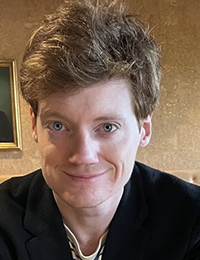
Dr Ryan Johnson
Research assistant and Tutor, Faculty of Arts and Social Sciences, University of Sydney
Ryan’s research interests include English, French and Japanese poetics, comparative views on modernity, literary theory, and the reception of classical Chinese texts in modern East Asia. Much of my work addresses the problems of theorizing the “world” in World Literature. His first book examined how, faced with increasing globalization, modern writers across the West and East Asia have navigated the difficulties of reconciling competing universalities, aesthetic, philosophical, and religious systems. His current projects consider how the concept of modernity has encouraged a transnational enthusiasm for comparative antiquities across America, Europe, and Asia, and how the dissemination and translation of radical Russian literature in Chinese, English, French, and Japanese have affected the very notion of an East-West divide in literature, philosophy, and spirituality.